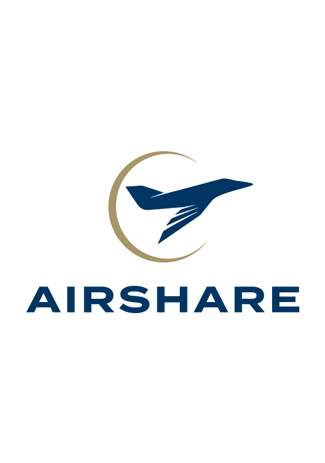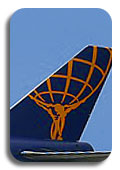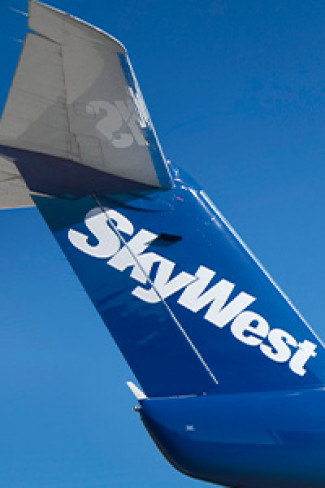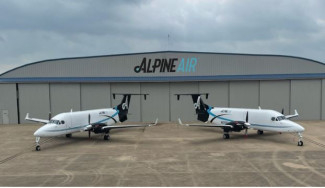How Not to Make $100K on Probationary Pay
Changing jobs typically ranks in the top five most stressful life events for the average person. The majority of the workforce makes lateral job transitions, meaning their new position has similar pay and benefits to their previous position. For most airline pilots, however, a job change almost always results in a significant pay reduction. A new job is not only stressful, but requires some creative financial maneuvering.
A couple weeks after you switch to a new company, whether it's your career goal or just a stepping stone, the new hire excitement wears off. The 50% pay cut that didn't seem so bad on paper suddenly rears its ugly head when you get your first paycheck. At every basic indoc class I’ve been in, as we stand around the break room drinking vending machine coffee the conversation turns to how to survive for a year on probationary pay. One question that often presents itself is whether or not to cash out a 401k account. Is this a good option, or a last resort?
If you're lucky, you've got a big savings account standing by for this exact situation. But if you're like many of us, continually hitting the reset button on your aviation career has left your savings account at approximately the same level as your average college graduate return-to-nester.
So, the clock is ticking on your probationary pay penance and you've got a year to go. You're now making a fraction of what you were, but your bills haven't proportionally decreased. What options do you really have?
You could pick up a second job. Nothing says you've reached the pinnacle of your flying career like changing shirts and greeting the folks at Walmart right after your trip.
Maybe there's a shiny credit card in your wallet with an available credit line. You can tap into that for a year and try to ignore the gigantic number next to "accrued interest" every month. Figure at least another year after your hourly rate goes up to pay that off, making your second year of the new job almost a wash.
Then again, there's a great big chunk of money sitting in that 401k account from your last job. You know you're not supposed to touch that until retirement, but that's way down the road and you really, really need that iPhone 6 right now.
Having been in this exact situation a few times myself, I've (unfortunately) exercised all three of those options. With the benefit of hindsight, if I could change one of those decisions it would be the 401k withdrawal. It's nice to put that money in hand all at once, but what is the real cost of accessing those funds? Here are some general numbers to put it into perspective.
Say you've got $20,000 in your 401k and you liquidate it to ease the pain of your job transition. First off, since a 401k is technically a retirement plan you'll have to pay an early withdrawal penalty of 10%. Uncle Sam wants a piece of that pie too, so figure paying federal and state taxes on the money you withdraw as income. Individual results will vary, but for the sake of the example let's assume a 25% federal tax bracket and 5% state. Before you even get to touch it, that $20,000 is down to approximately $12,000.
That's still a lot of money when you're pinching every penny to get by, but here's where it gets really expensive: How much would you have made if you rolled that money over and kept it in a 401k plan? Assuming an annual return of 6% (a conservative number), if you make a job transition when you're 35 years old that $20,000 would have grown to nearly $115,000 in 30 years. If you only had 20 years to let it grow it would be around $64,000, and in 10 years about $35,000.
The cash withdrawal that seems appealing right now is potentially costing you over $100,000, just to put $12,000 in your hand today. Does that seem like a good deal? Everyone's situation is different, and sometimes it may be the only choice. Long term, it may be better if you can score that Walmart gig.
Maybe you're trying to climb the airline career ladder, or maybe your company's business model of terrible service at extreme prices won't work out. There's a good chance that at some point in your career you'll find yourself on probationary pay again. The best thing you can do right now is prepare for it. If you can squirrel some money away now specifically for a job transition, the stress that comes with changing jobs won't be compounded by the stress of wondering if you and your family can survive on bologna sandwiches for a year.
It may not seem like it, but one day you really will be 65 years old. I have yet to hear someone complain about having too much money in their retirement fund. It's hard to let that money sit, but leaving it alone will pay off (literally) in the future. The extra $100K you can make will buy a pretty nice midlife crisis Corvette a few years down the road, and you have to figure THAT into the equation somewhere.
-

Airshare 07/22/2024
-
Alpine Air 07/18/2024
-

Atlas Air 07/17/2024
-

Piedmont Airlines 07/10/2024
-

SkyWest 07/09/2024
 AIRLINE PILOT CENTRAL
AIRLINE PILOT CENTRAL